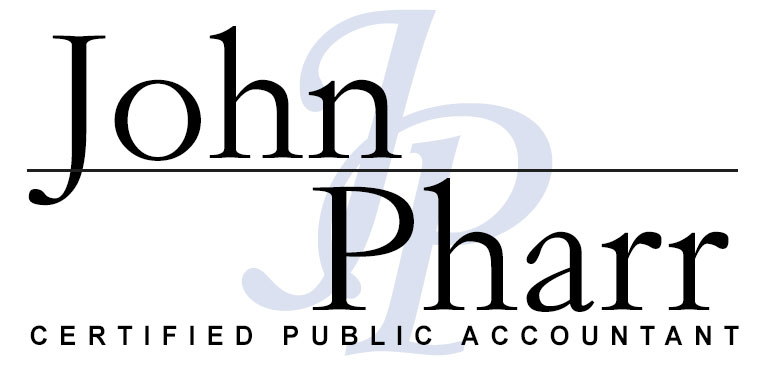Is IRA Investing Right for You?
Individual Retirement Accounts (IRAs) serve as a valuable tool for accumulating wealth for retirement. They offer many tax advantages, either at the time of contribution or during withdrawal.
When planning for retirement, it is essential to save enough money to ensure a comfortable future. However, it is also important to address current financial needs. Individual Retirement Accounts (IRAs) are savings tools that can help build wealth for retirement while offering potential tax advantages, either at the time of contribution or upon withdrawal. There are two primary types of IRAs to consider:
- Traditional IRA: This type allows for pre-tax contributions, deferring taxes until the money is withdrawn after age 59½. Withdrawals during retirement are taxed as ordinary income. Early withdrawals, before age 59½, may incur a 10% federal tax penalty.
- Roth IRA: Contributions are made with after-tax dollars, meaning taxes are paid upfront. The money in a Roth IRA can grow tax-free, and withdrawals are tax-free after age 59½, provided the account has been held for at least five years. If earnings are withdrawn before age 59½ and the account is less than five years old, the earnings may be subject to taxes and a 10% federal tax penalty.
Determining whether a Traditional IRA, Roth IRA, or both are suitable for you depends on your individual circumstances and financial objectives.
If your employer does not provide a 401(k) plan, or if you are self-employed
Employer-sponsored 401(k) plans are often considered the backbone of retirement savings for two primary reasons:
- Employer Matching Contributions: Many employers offer a match on employee 401(k) contributions, providing additional funds that should not be overlooked.
- Generous Contribution Limits: 401(k) plans have substantial contribution limits, which are typically deducted from your paycheck on a pre-tax basis. For the tax year 2023, the limit is $22,500, increasing to $23,000 for 2024, with an additional $7,500 catch-up contribution allowed for individuals aged 50 or older.
However, if you do not have access to a 401(k) through your employer, a tax-advantaged Individual Retirement Account (IRA) is likely your next best option. For 2023, you can contribute up to $6,500 to a traditional IRA, with the limit increasing to $7,000 in 2024. Those aged 50 or older can make an additional $1,000 catch-up contribution.
For the self-employed, a Simplified Employee Pension (SEP) IRA is another viable option. SEP IRAs allow small business owners to contribute significantly more towards retirement than a traditional IRA permits.
“Whether you’re saving in a traditional IRA, a Roth IRA, or a SEP IRA, the tax advantages can potentially place you far ahead compared to saving in a taxable account,” said Hayden Adams, CPA, CFP®, and director of tax and financial planning at the Schwab Center for Financial Research.
You maxed out your 401(k)
Even if you have a 401(k), opening an IRA can be advantageous if you wish to save more than the 401(k) contribution limits allow. A traditional or Roth IRA can help you accumulate additional retirement savings.
Furthermore, IRAs typically provide access to a broader array of investment options, such as stocks, bonds, exchange-traded funds (ETFs), mutual funds, and certificates of deposit (CDs). In contrast, most 401(k) plans generally offer a more limited selection of investment funds.
You could use a tax break this year
Contributing to a traditional IRA is one of the few tax-advantageous actions you can take up until Tax Day. If you open and fund your account before the IRS filing deadline, your tax-deferred contributions can typically be deducted from your taxable income. This deduction might be sufficient to lower your tax bracket, thereby reducing your tax liability.
However, eligibility for tax-deductible contributions depends on specific rules related to your income level and whether you or your spouse are covered by an employer-sponsored retirement plan.
Your priority is tax-free growth
Alternatively, if you do not need an immediate tax break, contributing to a Roth IRA might be preferable due to its potential for tax-free growth and tax-free withdrawals. Contributions to a Roth IRA are made with after-tax dollars, so they do not reduce your taxable income in the current year. However, the investment growth within the account is tax-free, providing significant tax savings when you withdraw funds during retirement.
Additionally, Roth IRAs offer tax-efficient wealth transfer benefits. If you pass your Roth IRA to your heirs, their withdrawals will also be income-tax-free, facilitating a tax-efficient transfer of wealth across generations.
It is important to note that there are income limitations for contributing to a Roth IRA. Ensure you check these limits before making contributions to a Roth account.
You seek financial flexibility during retirement
Traditional and Roth IRAs offer distinct tax advantages that can help reduce your tax burden in the short term and provide tax-efficient investment growth over the long term. Additionally, these accounts offer tax flexibility during retirement, a strategy often referred to as tax diversification.
By saving in both a traditional IRA (pre-tax) and a Roth IRA (after-tax), you can optimize your tax situation. It is important to note that tax-deferred accounts, such as traditional IRAs, require you to take required minimum distributions (RMDs) starting at age 73. To manage your taxable income effectively, you might consider taking distributions from your traditional IRA first, then deciding when to withdraw from your Roth IRA. This approach can help you control your taxable income and the amount of tax you owe during retirement.
PharrCPA
Ready to optimize your financial strategy? Take the next step with PharrCPA. Whether you’re saving for a short-term goal or planning for the future, our expert team is here to help.
Explore our range of investment options and tax solutions today to start maximizing your returns and achieving your financial goals. Don’t wait any longer – seize control of your financial future with PharrCPA.




